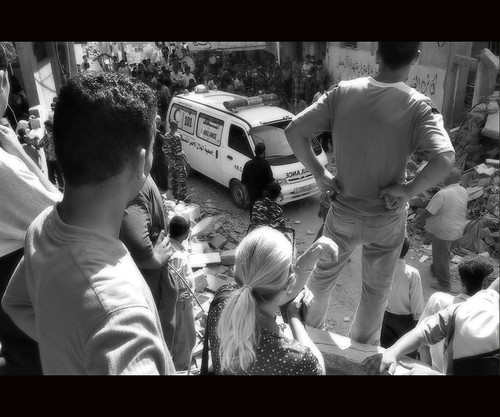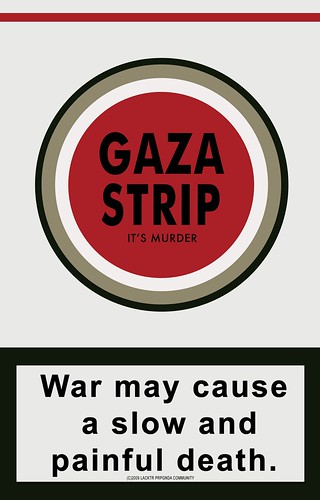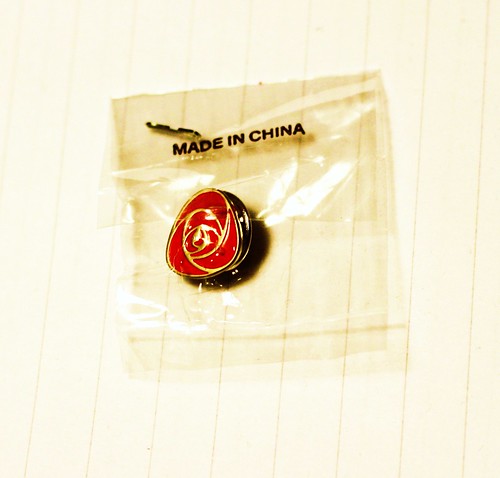Every morning's newsletter from
the New York Times contains a note at the bottom about events that took place on this day in history. On December 29th, the third day of the Gaza bombing campaign, it read "On Dec. 29, 1940, during World War II, Germany began dropping incendiary bombs on London." For the people of London, if they had time to reflect on the irony, this must have seemed like the perversion of New Years Eve. Fireworks raining down in destruction, rather than celebration. "As I write", wrote George Orwell
in an article published two months after the firebombing started, "highly civilized human beings are flying overhead, trying to kill me."

As of yesterday, at least 437 people have died in Gaza and 2,250 have been injured by highly civilised human beings since Israel's bombing campaign began. Many of them were civilians. Women. Children. 1.5 million people live on the Gaza strip, and half of them are under 14. It is the most densely populated area in the world, and all the doors are locked. How do you think the people there are feeling?

Let's not use names that do not fit the reality of events. The bombing of Gaza is a
crime against humanity and a
mass murder of civilians. There is nothing proportional or proper about this. There is nothing here that conforms to the laws of war. The people who ordered it are
war criminals who should be tried in the International Criminal Court and spend the rest of their natural lives in jail.
On December 29th, I participated in a protest that drew several hundred people out against the bombings. We started at Parliament and then moved up the hill to the area outside the Israeli embassy. The mood was aggressive and unpleasant, dominated by Palestinian and other Arab teenagers and young men. Several people, mainly male refugees in their 40s, as far as I could tell, were waving signs saying "[Star of David] = [Swastika]". As we ascended the hill next to the royal palace, I saw young men running off into flowerbeds to pick up rocks. As we neared the embassy, I had already realised that things were going to go wrong, and I decided to make myself scarce. I detached myself from the protest, cut through the park, came out 50 meters in front of the column of people and passed just in front of the police barricade before making my way out of the protester's paths.
As the protesters reached the barricades, I saw rocks flying and fireworks arcing out and exploding under the streetlamps. I watched the protest for a little while, until I got too cold, and then skulked off home. On the evening news, I saw that the conflict had escalated and the police had used tear gas, and we saw kids in Palestinian headscarves lighting things on fire and overturning barricades and being driven away by police.
And so, another chance of creating the image of a respectable peace movement was wasted. In the minds of television viewers across the country, supporting the cause of solidarity with the oppressed Palestinian people is something that angry kids with masks across their face and rocks in their hands do.
Am I angry with the kids who threw rocks? Of course I am. What they did was wrong and counterproductive. Do I understand why they feel the way they feel? Of course I do. I feel much the same way. But I'm using that feeling differently.
Protests, though not neccessarily the most effective form of political action, are acts of political speech. They are meant to cause action to be taken. They are meant to change minds, to articulate grievances and differences, to show disgust and to be humane in the face of barbarism. They are
rhetorical acts. Rhetoric is language which is instrumental: it is measured by how much it
gets things done.
Throwing rocks accomplishes nothing. It creates a quick fix of gratification, an outlet for rage. Then the tear gas clears and nothing has changed. We aren't in this for our own gratification. We are in this to create political solidarity with the suffering people of Gaza. We want to end the violence and the oppression.
More violence does not help. We are trying to build and articulate political consensus that will force the Israeli to end the violence in Gaza, and the unlawful occupation and oppression of the Palestine people.

Said more generally, though, I think that the actions of the protesters are going against the grain of what the peace movement has to be. It has to do with how I see what we're up against. Consider for a moment what the term "crimes against humanity" mean. According to the
Rome Charter, it means:
[P]articularly odious offences in that they constitute a serious attack on human dignity or grave humiliation or a degradation of one or more human beings. They are not isolated or sporadic events, but are part either of a government policy (although the perpetrators need not identify themselves with this policy) or of a wide practice of atrocities tolerated or condoned by a government or a de facto authority. However, murder, extermination, torture, rape, political, racial, or religious persecution and other inhumane acts reach the threshold of crimes against humanity only if they are part of a widespread or systematic practice. Isolated inhumane acts of this nature may constitute grave infringements of human rights, or depending on the circumstances, war crimes, but may fall short of falling into the category of crimes under discussion [emphasis mine]
That the bombing campaign on Gaza is a war crime is so obvious one must be criminally negligent to think otherwise. That it also constitutes a crime against humanity is now something that we, as activists, must keep in constant focus. The people directing this atrocity should never set foot outside of Israel again unless it is to see the inside of the International Criminal Court.
When I began this post with the note on the incendiary bombing of London, I was drawing an obvious paralell. But the paralell does not appear to be as obvious to everyone as it should be (think, for instance, of the banners I saw in the protest. The idea that this has anything to do with Jewishness is stupid and must be beaten back at all costs. Norwegians can think, for instance, of Trond Andresen's
unbelievably stupid article in this Saturday's
Klassekampen). So to clarify: my point is that the Israeli government and military are, like the highly civilisaed beings of Orwell's time, comitting crimes against humanity from the air. Raining fire and brimstone on the innocent and the guilty alike. Burning children alive. Killing pregnant women. Killing people who had nothing to do with anything; who were just living their lives. Highly civilised people.
Consider again what crimes against humanity means. It isn't just blowing children up and saying that there is no crisis here. It is doing so
as part of a systematic policy of atrocity. The children die because there is a plan in which their lives are not valued. A crime against humanity is using the power of the human intellect and rationality to destroy the civilisation which raised it. It is a crime which destroys our very humanity by using our humanity against ourselves. It is the perversion of thought.
The bombings are a nightmare, but it a nightmare of human invention - a crime against humanity. Crimes have perpetrators. Perpetrators can be tried and they can be punished. Don't throw rocks. All rocks that we throw hit ourselves. We will get through this by being calm but full of rage. Keep the rage alive and use it productively.
The opposite of a crime against humanity is civilisation. It is to use the same highly civilised gifts and powers and institutions that the crimes against humanity pervert in order to create peace, security and freedom.
I want people to talk about what is happening. Write about it, protest about it, demand
action from your government, not just words. Demans Security Council intervention. Demand a peacekeeping force. Demans a boycott (if you think that will help - I'm unconvinced). But:
Spread the information around. Sooner or later, something has to give. But for that to happen the peace movement has to be
serious, it has to be
massive, it has to be across the entire cross-section of humanity and most of all, it has got to be
peaceful. We have to channel our rage
through civilisation, not out of it, or towards it. We have to be even more highly civilised than our barbaric adversaries.
It sticks with me that the kids at the protest were throwing fireworks. I think this had to with available weapons at the time (later, they supposedly tried siphoning gas from nearby cars). Their rage was greater than the weapons available, but even with better weapons, they couldn't have won the war. It struck me, then, that this is a metaphor for what I am trying to argue here. We win when we stop trying to do the same as our opponents with weaker weapons. That's what being civilised is all about. Fireworks should be the highly civilised opposite of a barbarically civilised aerial bombardment, not an impotent attempt to replicate that bombardment on the ground. So save the fireworks people, please. We'll have plenty of use for them when we win.
Labels: crimes against humanity, gaza, george orwell, israeli-palestine conflict, peace movement, protest, rhetoric, war






